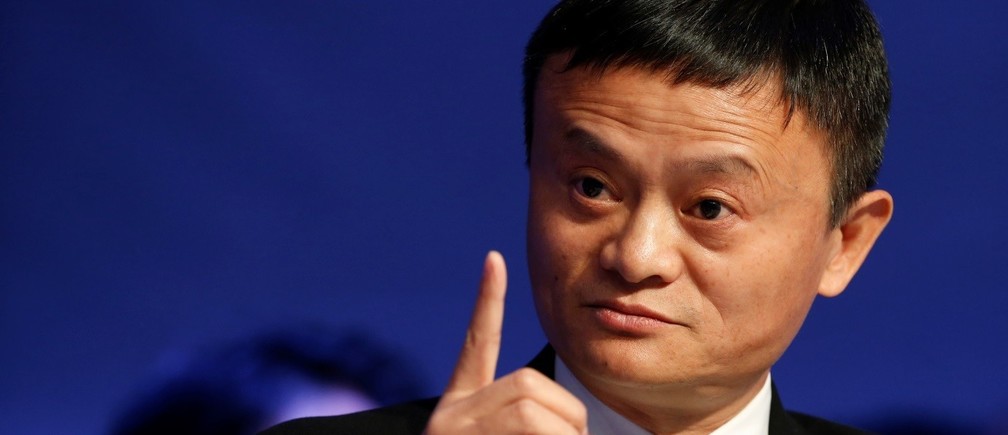China’s Jack Ma has relinquished control over Ant Group, but what does this mean for the direction of the fintech giant he founded and its prospects for a long-delayed initial public offering?
Earlier this month, Ant announced that Ma’s effective voting rights in the company would be reduced from 53.46% to 6.2%.
There had long been speculation that such a move was coming amid pressure from Beijing for the company to distance itself from Alibaba Group Holding, the tech conglomerate Ma co-founded and once led.
Previously, Ma and three Ant executives, who together indirectly held a 53.46% stake in the company, had an agreement to vote together at general shareholders meetings. This arrangement—a formal agreement disclosed to the stock exchange—gave Ma ultimate control over the company despite the fact that he did not sit on its board or hold any executive positions.
That arrangement has been formally terminated, Ant announced on January 7, and the voting rights once controlled by Ma and the three will now be distributed among him and nine other Ant executives.
Each of the ten will exercise their rights independently, Ant said in its announcement, adding that the adjustment will only affect voting rights and will not result in any change to the economic interests of any shareholders of Ant Group and their beneficiaries.
However, eight of the nine executives are being newly added to Ant’s capital structure, and most have worked with Ma for over a decade.
Oshadhi Kumarasiri, lead analyst at Lightstream Research and insight provider at investment platform SmartKarma, said Ma’s influence on the company may linger, even if his presence is reduced.
Kumarasiri said of the other nine Ant executives: “Their independence remains to be seen, especially considering that almost all of these new faces have been working with or for Jack Ma for a very long time. We feel the likelihood of them being obliged to carry out Ma’s agenda is very high.”
While that could indicate continuity in Ant’s direction going forward, one thing that will likely change is the scrutiny of how Ma and the executives exercise their votes.
“The main objective is to force Ma to relinquish control of Ant, and the regulators have accomplished this by ending the shareholders’ acting-in-concert arrangement,” said one Beijing-based analyst, who asked not to be named. “The authorities know that Ma dares not to control Ant again, and other shareholders are also obviously aware of this.”
Liao Rui, senior partner at Beijing W&H Law Firm, explained that concerted-action agreements are allowed in principle and listed companies must disclose them, but regulators have the authority to forbid them in certain circumstances.
“From the perspective of financial regulation, it is legal in China not to allow some shareholders to effectively control a company through a concerted-action agreement, no matter if it is in written or oral format,” Liao told Nikkei Asia.
“If there is a suspicion that shareholders have privately formed a concerted action, the regulator will investigate, and once it is determined, they will not only be severely punished by the regulator, but also be subject to claims by other shareholders,” he said.
“An entrepreneur like Jack Ma will never do this,” he added.
So what does all this mean for Ant’s long-delayed hopes of going public? The company had been set to raise USD 35 billion with a dual listing in Hong Kong and Shanghai in 2020, but the plan was suspended at the last minute after financial regulators demanded improvements in Ant’s consumer credit and credit services.
The most immediate effect is a longer wait time. Hong Kong does not allow companies to list within a year after a change to their controlling structure, while the requirement is two years for Shanghai’s tech-focused STAR board.
The timing could be further delayed if Ant fails to meet other regulatory requirements or fails to get a nod from other Chinese government agencies, including the central bank and Finance Ministry, besides the China Securities Regulatory Commission.
Ant must raise capital and obtain a financial holding company license and a credit bureau license if it hopes to revive its listing plans.
It has already made progress on the first front. Ant’s consumer lending unit—which was spun off in 2021—got the green light from regulators to expand its capital base to CNY 18.5 billion (USD 2.7 billion) from CNY 8 billion (USD 1.19 billion) earlier this month. The fundraising left Ant Group with a 50% stake in the unit, while government-related entities have a 20% stake.
Another fallout of the Ant saga is that its valuation has drastically shrunk since its IPO plans were put on hold. At the time, the company positioned itself as a tech player. Now it will be regulated more like banks, which tend to be valued much lower than tech companies.
Last year, Fidelity Investments cut its valuation for Ant to USD 70 billion, from USD 235 billion before the IPO suspension.
This article first appeared on Nikkei Asia. It has been republished here as part of 36Kr’s ongoing partnership with Nikkei.

